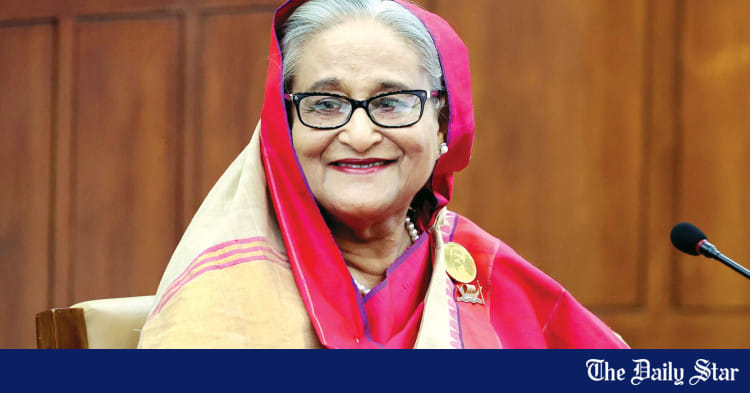Saif
Senior Member
- Messages
- 17,462
- Likes
- 8,403
- Nation

- Residence

- Axis Group


Bangladesh-India trade dynamics
It was 50 years ago when Bangabandhu Sheikh Mujibur Rahman, the then Prime Minister of Bangladesh, visited the Indian capital, New Delhi, at the invitation of Indira Gandhi, the then Prime Minister of India. The five-day visit from May 12 to 16, 1974, was the second and the last and most critical o
Bangladesh-India trade dynamics
ASJADUL KIBRIA
Published :
May 25, 2024 23:01
Updated :
My 26, 2024 21:43

It was 50 years ago when Bangabandhu Sheikh Mujibur Rahman, the then Prime Minister of Bangladesh, visited the Indian capital, New Delhi, at the invitation of Indira Gandhi, the then Prime Minister of India. The five-day visit from May 12 to 16, 1974, was the second and the last and most critical official visit to India. Two years before, he visited Kolkata from February 6 to 8, 1972. In between the two trips, many critical developments took place. These include Indian PM Indira Gandhi's visit to Bangladesh from March 17 to March 19, 1972; the singing of the Treaty of Friendship, Cooperation and Peace between the two countries in 1972; the singing of the bilateral trade agreement in 1972, and the singing of the protocol on Inland Water Transit and Trade in 1972.
During Bangabandhu's visit to India in 1974, several critical issues were discussed by the heads of the two governments. Regarding the bilateral trade issue, two parties agreed to set up two joint commissions to improve the jute sector and curb unauthorised transactions. The two parties also agreed to make the optimal use of a Balanced Trade and Payments Arrangement (BTPA). The arrangement was included in the three-year bilateral trade agreement, which replaced the first bilateral trade agreement, signed in 1972 and expired in September 1973. The agreement provided an opportunity for border trade between the two countries. It allowed people living up to 16 km on either side of the border to dispose of their goods daily. There was no customs and currency regulation for the border trade. The only restriction was the specific number of commodities. The agreement also provided an opportunity for a balanced rupee trade worth Rs. 250 million (or US $35 million) each way annually. In the new three-year trade agreement that became effective after the expiration of the first agreement in September 1973, two parties agreed to enhance the balanced trade to Rs. 305 million (US$ 42 million) worth of exports each way during the first year of the deal.
To read the rest of the news, please click on the link above.
ASJADUL KIBRIA
Published :
May 25, 2024 23:01
Updated :
My 26, 2024 21:43
It was 50 years ago when Bangabandhu Sheikh Mujibur Rahman, the then Prime Minister of Bangladesh, visited the Indian capital, New Delhi, at the invitation of Indira Gandhi, the then Prime Minister of India. The five-day visit from May 12 to 16, 1974, was the second and the last and most critical official visit to India. Two years before, he visited Kolkata from February 6 to 8, 1972. In between the two trips, many critical developments took place. These include Indian PM Indira Gandhi's visit to Bangladesh from March 17 to March 19, 1972; the singing of the Treaty of Friendship, Cooperation and Peace between the two countries in 1972; the singing of the bilateral trade agreement in 1972, and the singing of the protocol on Inland Water Transit and Trade in 1972.
During Bangabandhu's visit to India in 1974, several critical issues were discussed by the heads of the two governments. Regarding the bilateral trade issue, two parties agreed to set up two joint commissions to improve the jute sector and curb unauthorised transactions. The two parties also agreed to make the optimal use of a Balanced Trade and Payments Arrangement (BTPA). The arrangement was included in the three-year bilateral trade agreement, which replaced the first bilateral trade agreement, signed in 1972 and expired in September 1973. The agreement provided an opportunity for border trade between the two countries. It allowed people living up to 16 km on either side of the border to dispose of their goods daily. There was no customs and currency regulation for the border trade. The only restriction was the specific number of commodities. The agreement also provided an opportunity for a balanced rupee trade worth Rs. 250 million (or US $35 million) each way annually. In the new three-year trade agreement that became effective after the expiration of the first agreement in September 1973, two parties agreed to enhance the balanced trade to Rs. 305 million (US$ 42 million) worth of exports each way during the first year of the deal.
To read the rest of the news, please click on the link above.







